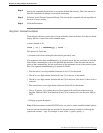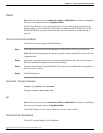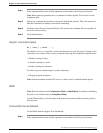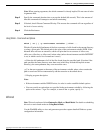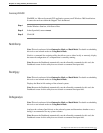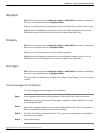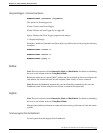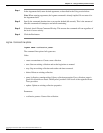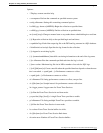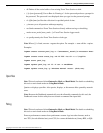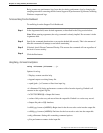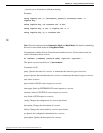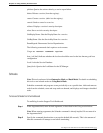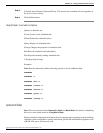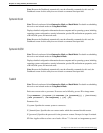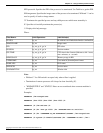
Options:
•
-? Displays context sensitive help.
•
-s <computer> Perform the command on specified remote system.
•
-config <filename> Settings file containing command options.
•
-b <M/d/yyyy h:mm:ss[AM|PM]> Begin the collection at specified time.
•
-e <M/d/yyyy h:mm:ss[AM|PM]> End the collection at specified time.
•
-m <[start] [stop]> Change to manual start or stop rather than a scheduled begin or end time.
•
-[-]r Repeat the collection daily at the specified begin and end times.
•
-o <path|dsn!log> Path of the output log file or the DSN and log set name in a SQL database.
•
-f <bin|bincirc|csv|tsv|sql> Specifies the log format for the collection.
•
-[-]a Append to an existing log file.
•
-[-]v [nnnnnn|mmddhhmm] Attach file versioning information to the end of the log name.
•
-[-]rc <filename> Run the command specified each time the log is closed.
•
-[-]max <value> Maximum log file size in MB or number of records for SQL logs.
•
-[-]cnf [[[hh:]mm:]ss] Create a new file when the specified time has elapsed or when the max
size is exceeded. -c <path [path ...]> Performance counters to collect.
•
-c <path [path ...]> Performance counters to collect.
•
-cf <filename> File listing performance counters to collect, one per line.
•
-si <[[hh:]mm:]ss> Sample interval for performance counter collections.
•
-ln <logger_name> Logger name for Event Trace Sessions.
•
-[-]rt Run the Event Trace Session in real-time mode.
•
-p <provider [flags [level]]> A single Event Trace provider to enable.
•
-pf <filename> File listing multiple Event Trace providers to enable.
•
-[-]ul Run the Event Trace Session in user mode.
•
-bs <value> Event Trace Session buffer size in kb.
•
-ft <[[hh:]mm:]ss> Event Trace Session flush timer.
•
-nb <min max> Number of Event Trace Session buffers.
Cisco Support Tools User Guide for Cisco Unified Software Release 2.1(1)
239
Chapter 14: Using 3rd Party Common Tools
Logman



